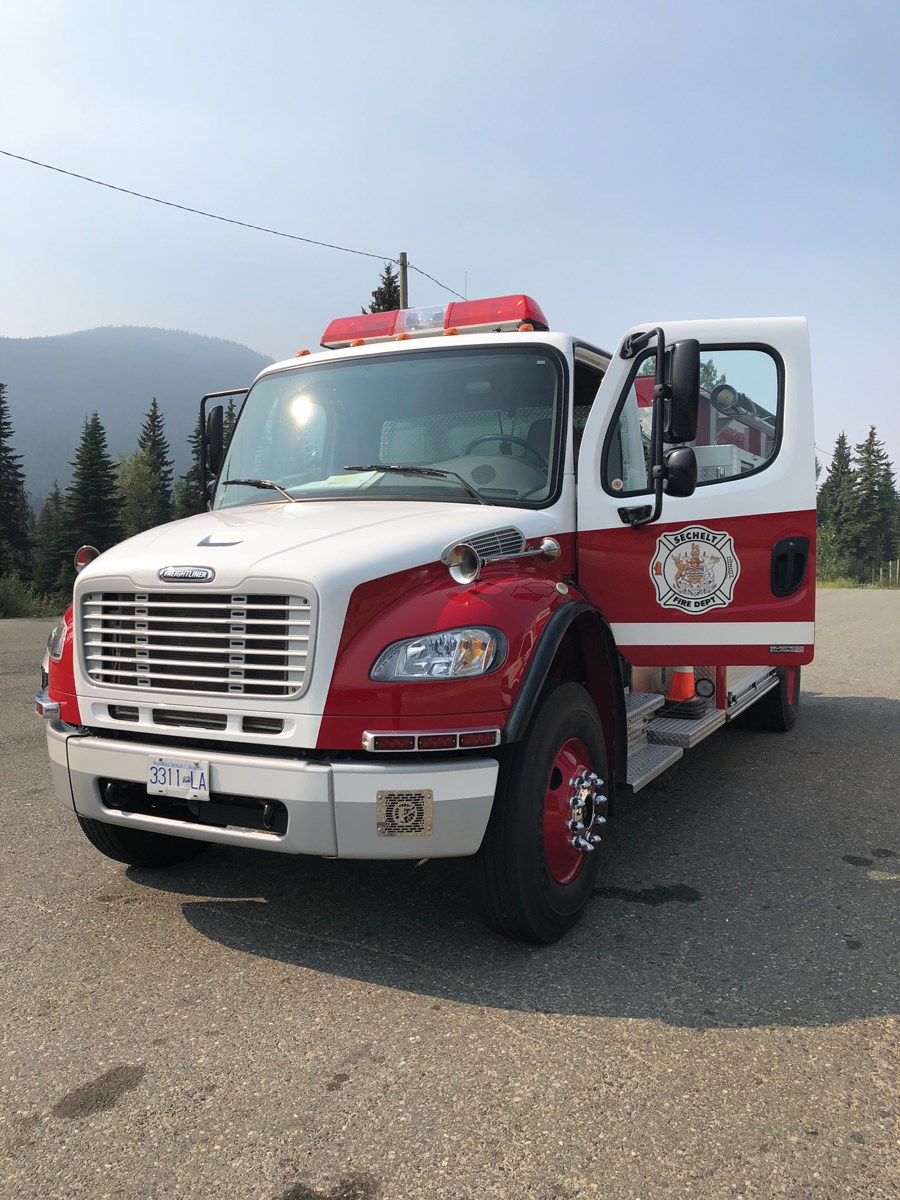Evacuation orders affecting thousands have been called and 566 wildfires were burning across the province on Tuesday – enough for Ottawa to send Armed Forces to fight the blazes and for the B.C. government to declare a state of emergency. Now added to those relief efforts are volunteer firefighters from the District of Sechelt and the Sunshine Coast Regional District.
Two Sechelt Fire Department firefighters, assistant fire Chief Dwight Davison and Dylan Chow – the department’s 2017 firefighter of the year – have been deployed to the north-central B.C. community of Fort St. James, where several wildfires are burning nearby and evacuation orders have been issued. Two members of the Roberts Creek Volunteer Fire Department and two from the Gibsons Volunteer Fire Department were also sent, with a Roberts Creek fire engine.
“Basically they packed last night, came down and took off on the first ferry this morning,” said Sechelt Fire Chief Trevor Pike of Davison and Chow. The two firefighters are driving a large water shuttling truck with pumping capabilities that can hold up to 1,600 gallons of water, and which has “pump and roll capabilities,” meaning it can pump water as it is driven, something Pike said is beneficial when fighting wildfires.
Pike said he received a call from the Office of the Fire Commissioner the evening of Aug. 13 requesting emergency resources be supplied to Fort St. James. He said a fire hadn’t been expected in the community but a change in wind conditions meant the fire had begun to move towards the centre of town and was expected to hit Aug. 15. “That’s why they were really in a hurry to get the resources put together,” said Pike.
The Sechelt Fire Department has authorized a tender, which will see two firefighters deployed on a rotating basis every six days, with four days in the field and two for travel.
The length of the tender could last from two weeks to two months, depending on the fire situation, and there is a possibility firefighters could be deployed elsewhere.
Pike said last year Sechelt firefighters served 12 rotations at Williams Lake. “The stress levels and fire intensity in Williams Lake wasn’t that high,” he said. “I do know they expect the firefight to be a lot more intense in Fort St. James based on the fire conditions so it’s possible they could see some frontline firefighting duties.”
With one less vehicle and two fewer firefighters during a time with a high fire danger on the Coast, Pike said the department will rely on the mutual aid agreement with neighbouring fire departments in case a fire breaks out in their coverage area.
“Across the province fire department resources are stretched thin and that’s one of the reasons there’s a real strict campfire ban in place and we ask the community’s cooperation to do everything they can to reduce the chance of wildfire,” said Pike.



